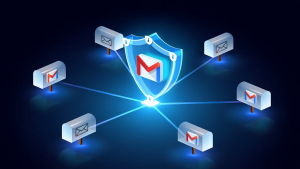Dropbox: Playing By Their Own Rules
![]() The Internet landscape has undergone drastic change over the past several years. One of the surprising drivers of this change came about with the founding of the file sharing service known as Dropbox. The company seized on an opportunity to be able to provide a framework for the sharing of large data files between devices. And with Dropbox’s dominance in the market, they have set their sights on what they believe their future holds.
The Internet landscape has undergone drastic change over the past several years. One of the surprising drivers of this change came about with the founding of the file sharing service known as Dropbox. The company seized on an opportunity to be able to provide a framework for the sharing of large data files between devices. And with Dropbox’s dominance in the market, they have set their sights on what they believe their future holds.
As reported on SiliconANGLE’s News Desk this week, Dropbox hosted their first ever developer conference recently. The purpose behind the conference is so Dropbox can morph from a simple file storing and sharing service to a fully developed platform that allows its users to be able to access any of the hundreds of millions of current clients regardless of device or location.
Addressing the Dropbox platform, SiliconANGLE’s Melissa Tolentino wrote that it was specifically designed as to be able to connect apps, devices and services with additional value for the client being drawn from the implementation of a full suite of development tools aimed at allowing developers the ability to build across both devices and platforms.
Additionally, Dropbox has introduced their new Datastore API. This utility is a departure from the earlier business model in that it allows for the saving of information, not just files. For example, if you are playing an app-based game, the Datastore API will store your high score and allow you to continue play from the point you last played.
Patrick Stafford, writing for smartcompany.com noted, “In essence, Dropbox is aiming to replace the hard drive. Soon, developers will be able to create apps that use Dropbox as a file sharing system instead of having to save files on the device itself.” Stafford goes on to paint a picture that eliminates the proprietary nature of our smart phones. “Think about it: Pick up an app on an iPhone, then access the same files using an Android device. How? The files are all on the cloud – in Dropbox.”
This change is reflective of our individual experiences. As most of us make the transition from traditional PC computing to more mobile devices, we interact with our computing in a completely different manner. We don’t save information on mobile devices in the same way we do on a computer.
Another recently introduced innovation is the use of ‘drop-ins’. Yahoo! Mail, Shutterstock and Mailbox have already availed themselves of this new feature. In essence, a drop-in allows a developer to connect to any number of Dropboxes with minimal code. These drop-ins have two distinct methods of interaction. The “Chooser” allows access to their files in their Dropbox. The “Saver” is able to save files to a Dropbox in a single click.
According to Stafford, Dropbox is uniquely suited to affect this change to the current landscape because, being independently owned, they are under no obligation to operate by the ecosystem rules already established by the major tech companies.
Dropbox, it seems, realizes we are entering a brave new world for data storage and utilization and they are taking a heck of a gamble to chart the path the others will follow. If this endeavor pans out, (and there is no reason to think it won’t), Dropbox will be well positioned to realize that fortune favors the brave.
A message from John Furrier, co-founder of SiliconANGLE:
Your vote of support is important to us and it helps us keep the content FREE.
One click below supports our mission to provide free, deep, and relevant content.
Join our community on YouTube
Join the community that includes more than 15,000 #CubeAlumni experts, including Amazon.com CEO Andy Jassy, Dell Technologies founder and CEO Michael Dell, Intel CEO Pat Gelsinger, and many more luminaries and experts.
THANK YOU













